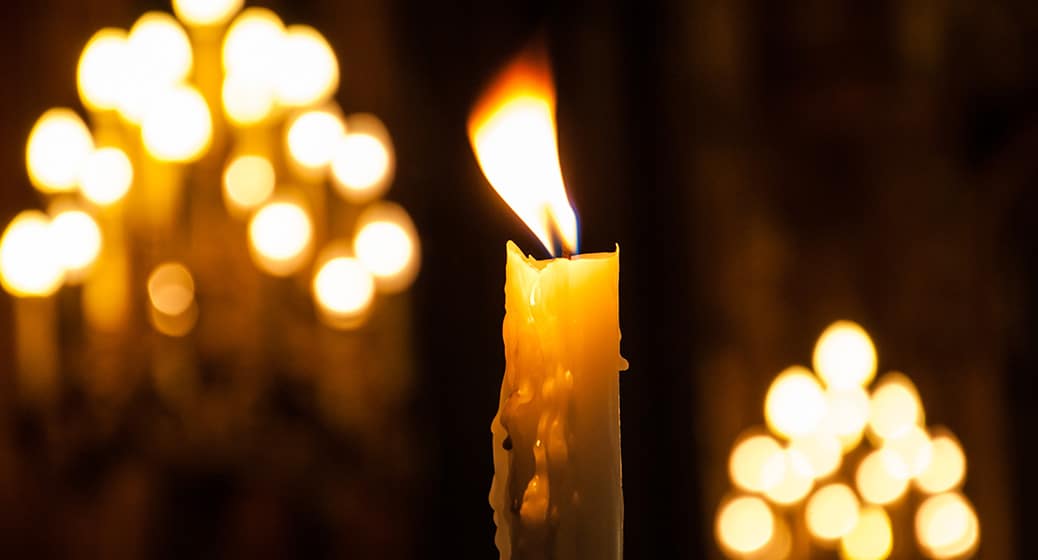The holiday season should be joyful, at least according to the ads, Christmas carols, and Instagram reels. But for many, this time of year can feel far from celebratory, especially if you have suffered a significant loss. Whether you celebrate Christmas, Hanukkah, Kwanzaa, or none of the above, the holidays are associated with family, togetherness, and tradition.
If you’ve lost a loved one, the holidays might trigger feelings of grief, which can include sadness, loneliness, or even anger. Fortunately, there are ways to cope with these emotions that don’t require canceling the season all together. Here are 8 ways to cope with grief and loss this holiday season.
Anything goes
Give yourself permission to experience the full range of emotions that might arise this time of year. Grief often comes in waves. One minute you may feel fine, then something triggers a memory, and you are overcome. Allow it all. If you tend to avoid or suppress your feelings, try journaling or practicing a mindfulness meditation for grief.
Give yourself grace
Because you may feel differently from moment-to-moment, you may have to soften the expectations you have for yourself. Maybe you don’t RSVP “yes” to every holiday invite. Maybe instead of traditional gifts, you donate to a charity in your loved one’s name. Do what feels right to you.
Set boundaries
Be clear with friends and family about what you are able to take on this holiday season.
Not everyone will understand what you are going through, but remember that you are not responsible for other people’s feelings. It’s okay to prioritize self-care.
Balance solitude with social time
Even though you may not feel much like socializing, try not to isolate. It is important to give yourself time to reflect and replenish, but too much alone time can make you feel worse. To conserve emotional energy, consider celebrating in smaller groups or for shorter periods of time than usual.
Observe existing traditions
Many people find comfort in observing family traditions around the holidays. Traditions provide a feeling of constancy and connection to the past. If your lost loved one was an integral part of your holiday traditions, you may need to reassign roles. Involving the younger generation can provide old traditions with new meaning.
Create new traditions
Some family traditions might feel too painful to observe this year. Some may need to be retired permanently– for example, if no one else knows grandma’s secret recipe for sticky buns. Change is hard, but it opens the door for new traditions. Maybe instead of sticky buns, you organize a “bake-off” competition in your family or neighborhood. Maybe instead of Dad’s traditional light display, you drive around town ranking other people’s decorations. Try a few different activities and see what sticks.
Volunteer
Research indicates that helping others reduces stress, increases gratitude, and gives you a sense of purpose. Perhaps there is a particular cause that you feel passionate about, or maybe you volunteer for an organization that helped your lost loved one. Whether you are paying it forward or returning a favor, there is nothing like the warm, fuzzy feeling that comes from giving a hand to someone in need.
Reach out for support
Grief can be lonely. It may seem like everyone else is carrying on with their lives while yours has been upended. Because the subject of death makes many people uncomfortable, friends and family members may avoid you, or try to “fix” your grief with dismissive euphemisms. But you are not alone! Consider joining a support group for grief and loss, or connect with a therapist who is trained in these issues. Make a list of people you can count on to support you, and be specific about what you need from them, (e.g., to listen, spend time with you, pick up the groceries).
Conclusion
Grief and loss are part of the human experience. While no two people will grieve the same way, there is some constancy to what helps people cope with feelings of grief. This holiday season, go easy on yourself, set reasonable expectations, and find new ways to celebrate. Try volunteering, and utilize social supports. While the holidays won’t be the same without your lost loved one, they don’t have to be completely joyless, either. Grief and joy can coexist. Painful though it may be, your grief is evidence that you have loved and been loved. And that is something worth celebrating this holiday season.
Keep Reading
Want more? Here are some other blog posts you might be interested in.









